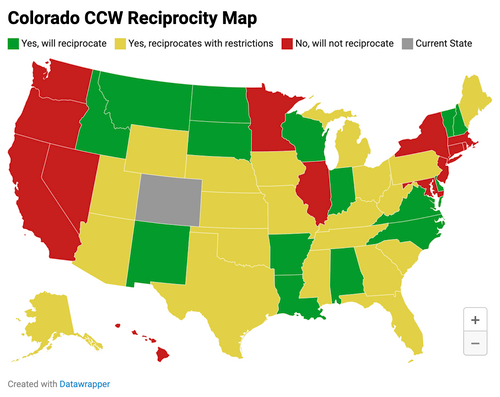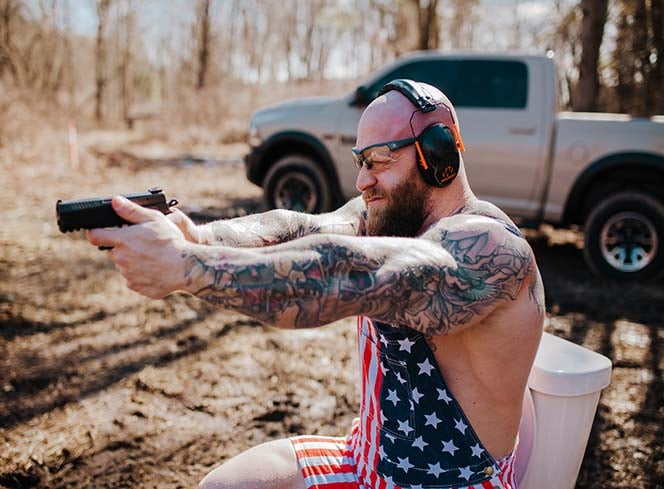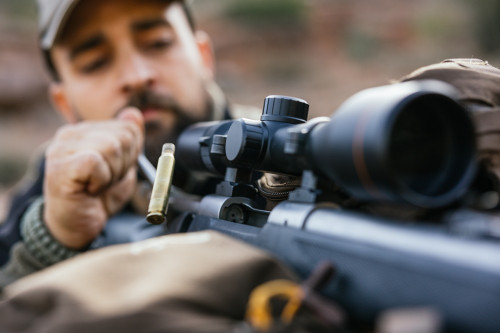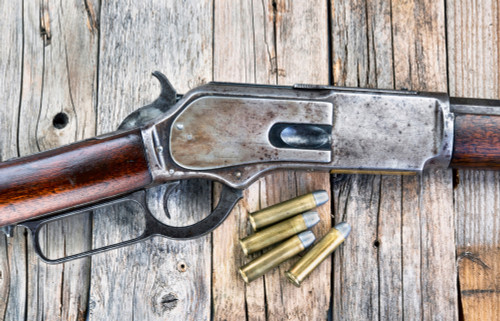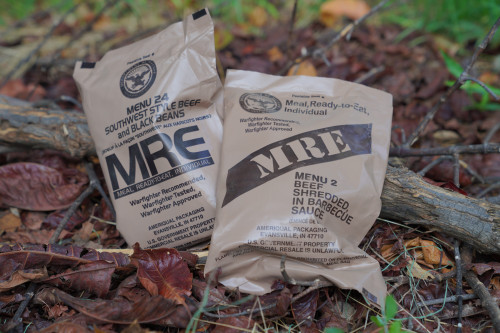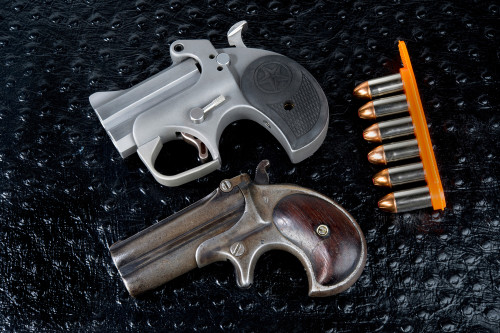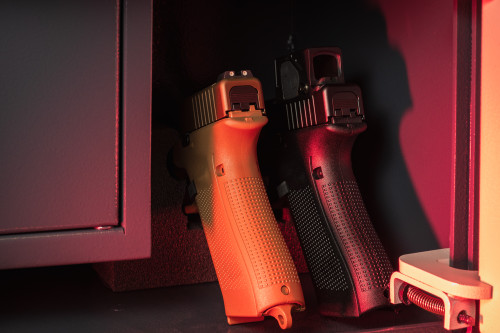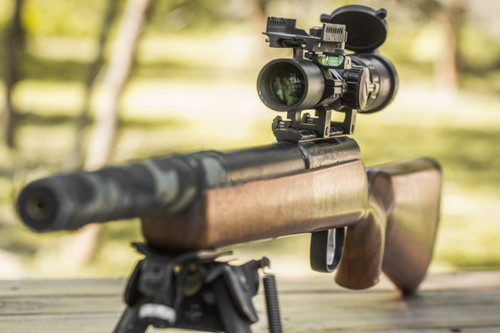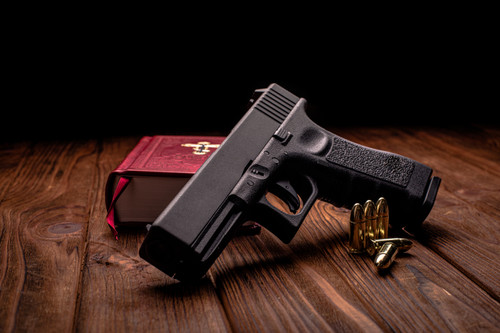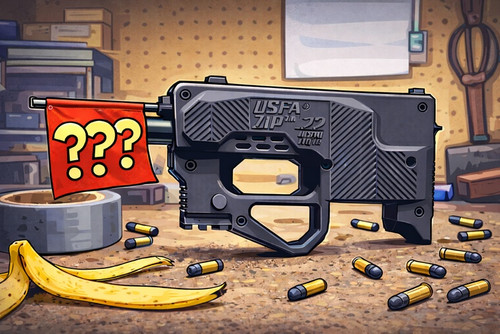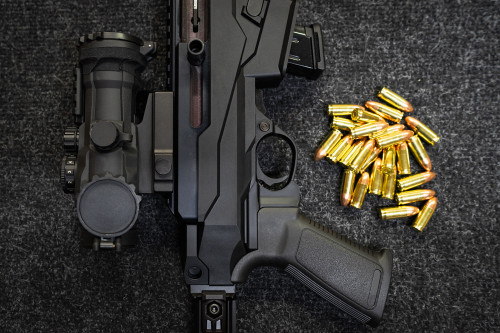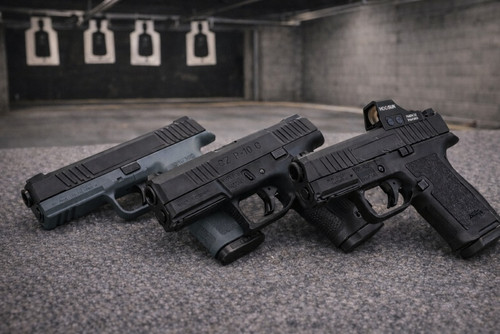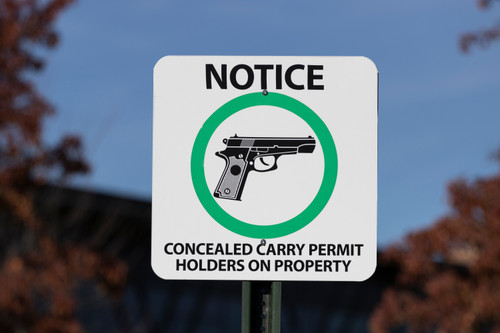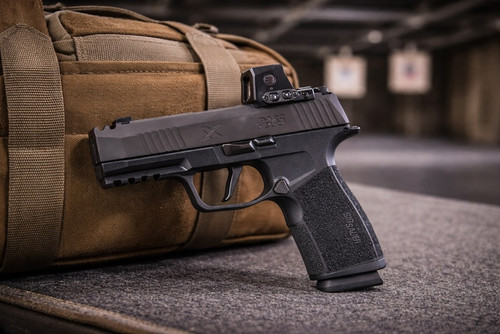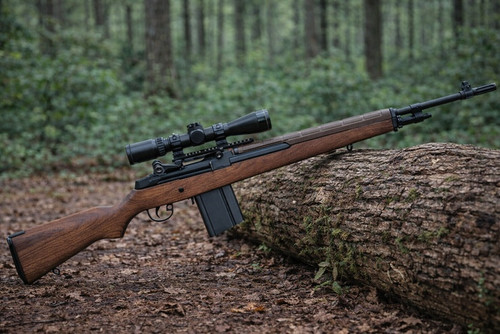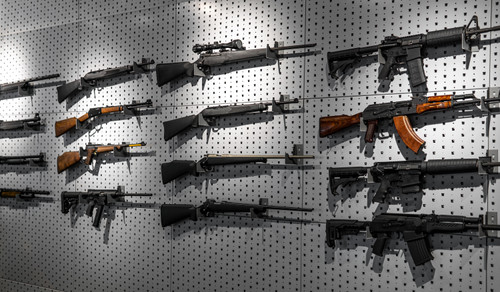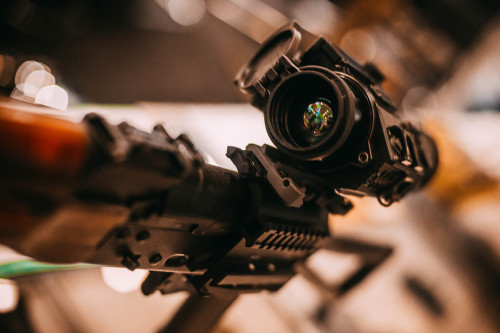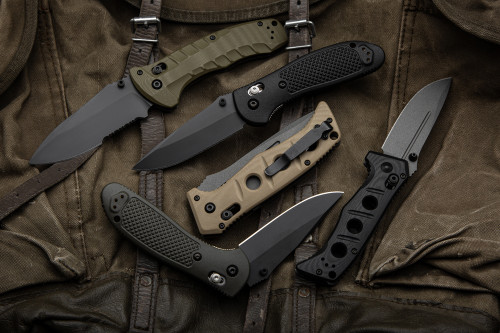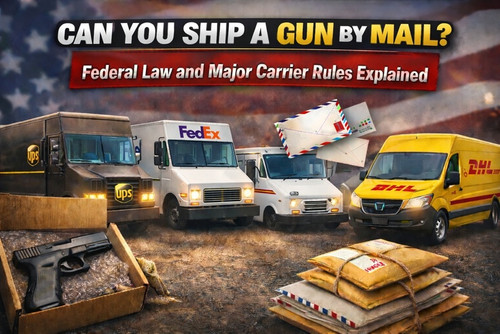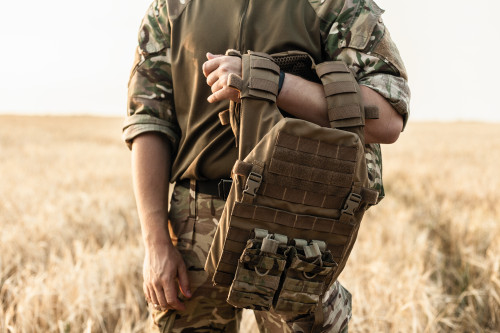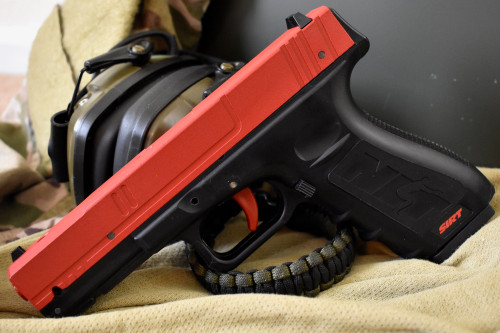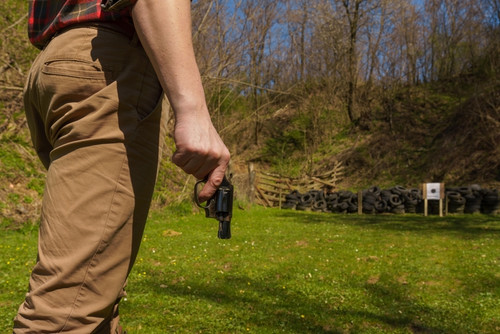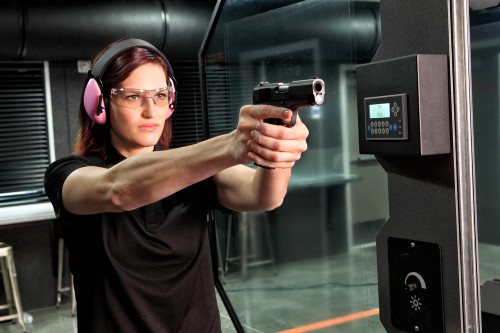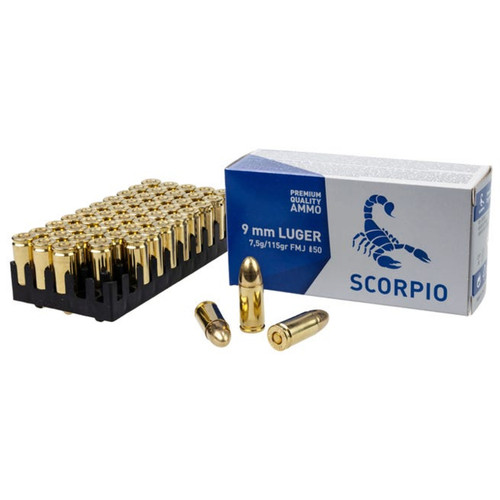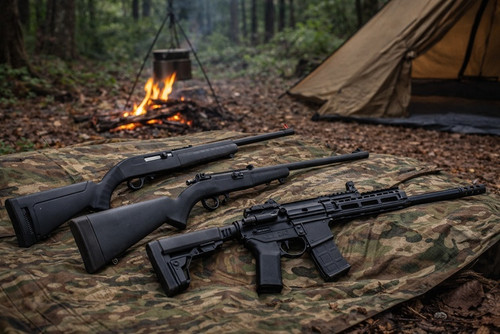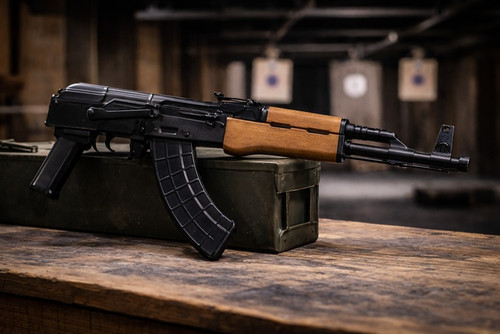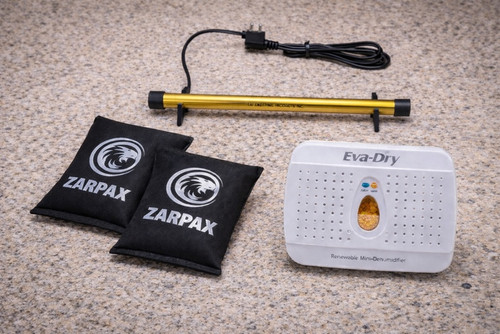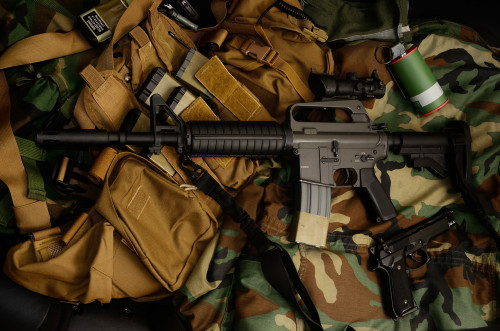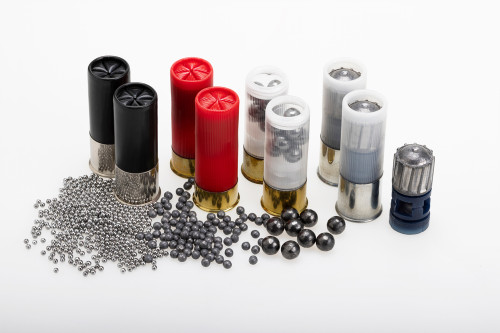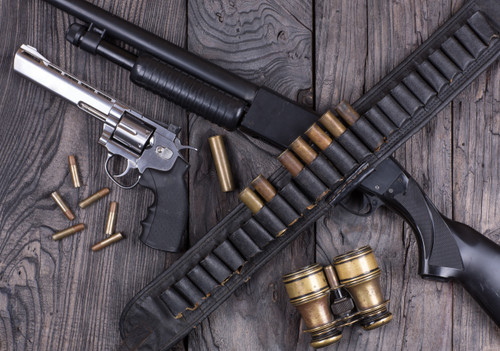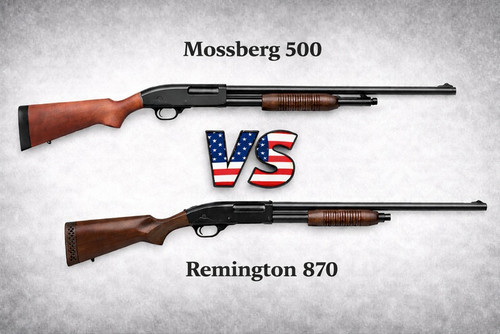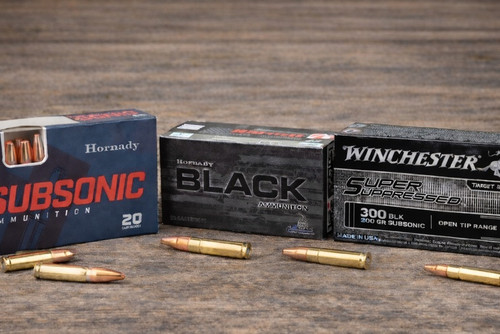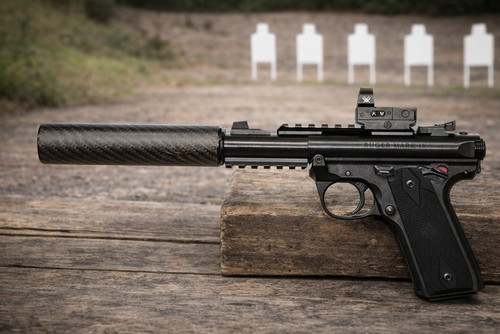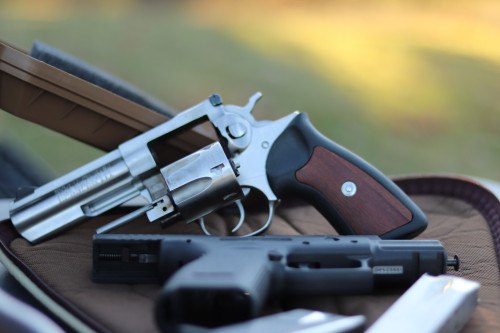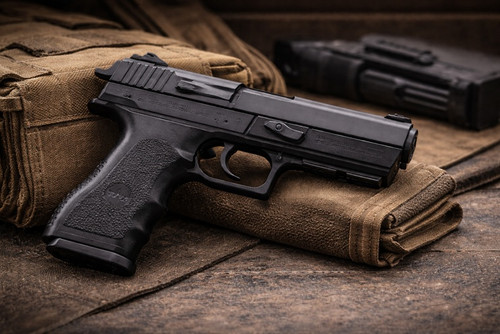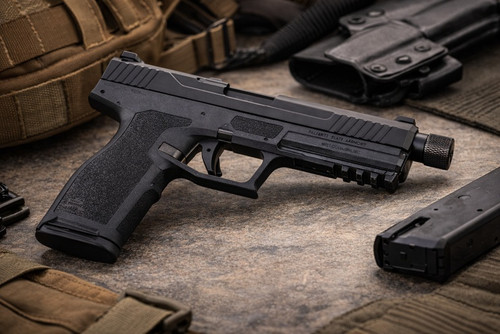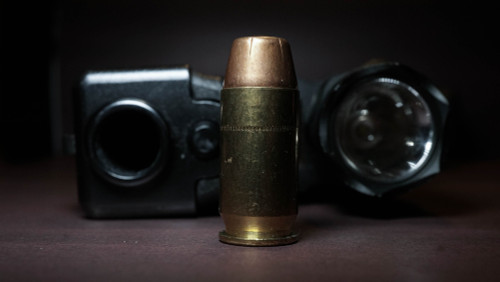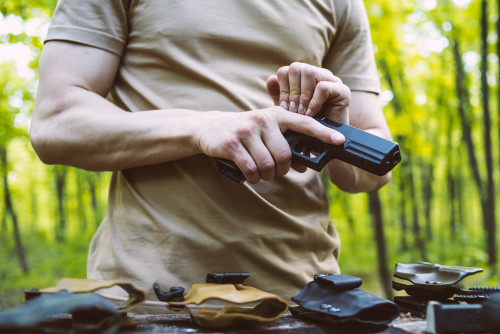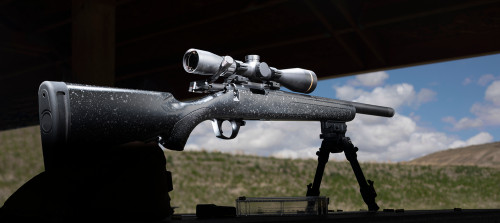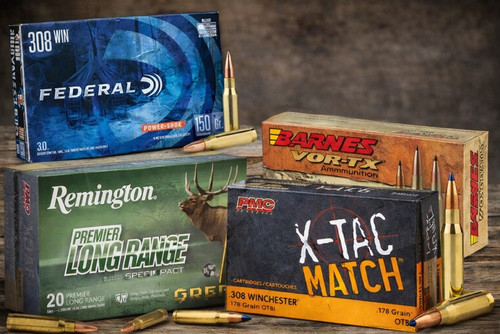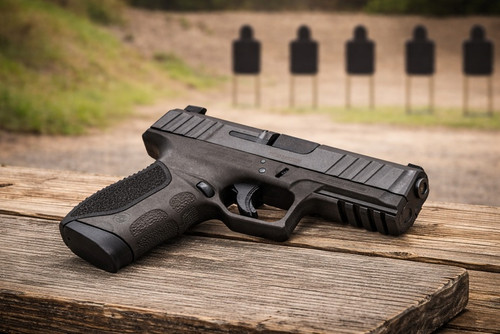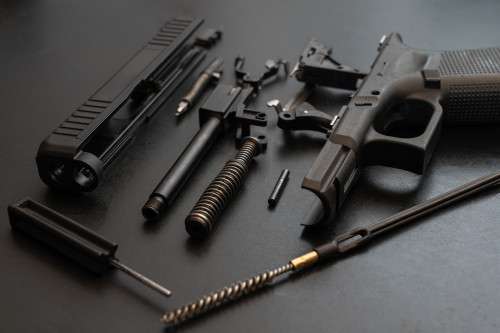Colorado is a land of extremes, home to both modern progressive urban areas and some of the most vast and inhospitable wilderness in the United States. As a result, concealed carry laws are a balance between these extremes. Overall, Colorado concealed carry laws respect the Second Amendment and support the needs of responsible gun owners. But there are also some restrictions.
In this guide, we’ll cover everything you need to know about concealed carry in Colorado including reciprocity with other states, how to get a license, and specific rules regarding the purchase, carry, and use of a firearm in the “Centennial State.”
Legal Disclaimer
This article doesn’t constitute legal advice. We’re communicating informally here to make this information easy to grasp and to avoid getting lost in legal mumbo jumbo. With that said, it’s the legal mumbo jumbo that may decide your fate in court. Be prepared.
We’ll be as accurate as we can, but for clarification, cross-check the information here with actual laws, which we’ve linked throughout the article. If you have additional questions or concerns, we recommend consulting with an attorney experienced in the self-defense laws of Colorado.
1. Quick Stats
- Number of other state permits honored in Colorado: 33
- Number of states that honor Colorado permits: 36
- Percentage of people licensed for concealed carry in Colorado: 11%
- Number of issued licenses in Colorado: 638,000
- Minimum age to carry a concealed firearm in Colorado: 21
- Colorado concealed carry license validity: 5 years
2. Colorado Concealed Carry Overview
This section provides an overview of concealed carry laws in Colorado.
Concealed Handgun Permit
Colorado is not a constitutional carry or permitless carry state. To legally carry a concealed firearm, you must qualify for and obtain a Colorado Concealed Handgun Permit (CHP). However, open carry is permitted in Colorado for anyone who can legally possess a firearm, though this is restricted in some areas.
Colorado is a shall-issue state, which means anyone who meets the qualifications can obtain a CHP. You don’t need to provide proof to the government that you have a particular need for a concealed firearm. CHPs are processed and issued by your local sheriff’s office.
To qualify for a CHP, you must be 21 years old, complete a state-approved firearms training course, meet certain criminal history requirements, and not otherwise be prohibited from possessing a firearm. Colorado does not issue CHPs to non-residents unless you’re active-duty military.
Your CHP is not linked to your driver’s license, so law enforcement will not immediately be made aware of your concealed carry status during a routine traffic stop. Only law enforcement has access to the concealed carry registry.
Detailed information about obtaining a CHP can be found in section 7 of this article.
CO Rev. Stat. 18-12-203
Preemption
The Colorado government retains partial preemption rights over firearm laws throughout the state. Recent legislation gave local governments the right to enact ordinances that prohibit where firearms can be stored, carried, and discharged within their jurisdiction.
Usually, these ordinances will be clearly posted, but always check the regulations in your area to stay on the right side of the law.
CO Rev. Stat. 29-11.7-103
Red Flag Law
Colorado has a red flag law, also called a temporary extreme risk protection order (ERPO), which prevents the subject of the order from buying, possessing, or transporting firearms. The purpose of the ERPO is to prevent imminent catastrophe.
Unlike many other states, Colorado accepts ERPO petitions from a variety of concerned parties including law enforcement, medical and mental health providers, educators, attorneys, relatives, domestic partners, roommates, spouses, former spouses, and pretty much any other close person who reasonably believes the subject is imminently dangerous.
The subject of the ERPO must turn in their CHP and surrender their firearms to law enforcement or a federal firearms licensee (FFL) dealer.
CO Rev. Stat. 13-14.5-103
Other Weapons
The Colorado CHP exclusively regulates firearms and doesn't apply to other weapons.
However, there is no law preventing ownership of non-lethal self-defense tools such as pepper spray, stun guns, and tasers. As long as these tools are used for legal self-defense, you’re good to go. You must be 18 or older to legally possess these tools.
The preemption laws mentioned above also pertain to non-lethal self-defense tools, so laws may vary by jurisdiction.
Magazine Limits
Colorado prohibits the sale, transfer, or possession of magazines that can hold more than 15 rounds. While this isn’t as bad as California’s law, it's still a bit restrictive. That doesn’t stop you from carrying extra mags, though.
CO Rev. Stat. 18-12-301 and 302
Ammunition Restrictions
Colorado has no state laws restricting ammo.
3. Colorado Concealed Carry Reciprocity
Every state has different rules and licensing procedures for concealed carry. However, some states either fully or partially recognize the concealed carry permits of other states. Here is how Colorado fits into the national concealed carry picture:
State Permits Honored by Colorado
Colorado honors valid concealed carry permits from 33 other states. To be recognized in Colorado, a concealed carrier must meet the criteria below. You must:
- Possess a permit from a state that honors the Colorado CHP
- Be a resident of the state that issued your permit
- Have a state driver’s license that confirms your residency
- Be at least 21 years old
- Possess the physical permit card
CO Rev. Stat. 18-12-213
Based on these criteria, Colorado honors permits from the following states:
- Alabama
- Alaska
- Arizona
- Arkansas
- Delaware
- Florida
- Georgia
- Idaho
- Indiana
- Iowa
- Kansas
- Kentucky
- Louisiana
- Michigan
- Mississippi
- Missouri
- Montana
- Nebraska
- New Hampshire
- New Mexico
- North Carolina
- North Dakota
- Ohio
- Oklahoma
- Pennsylvania
- South Dakota
- Tennessee
- Texas
- Utah
- Virginia
- West Virginia
- Wisconsin
- Wyoming
States Fully Honoring Colorado CHP
The states below fully honor the Colorado CHP, which means CHP holders can carry a concealed firearm in that state without seeking any additional approval. However, you must be aware of and follow the gun laws in any state you visit.
- Alabama
- Arkansas
- Delaware
- Idaho
- Indiana
- Louisiana
- Montana
- New Hampshire
- New Mexico
- North Carolina
- North Dakota
- South Dakota
- Vermont
- Virginia
- Wisconsin
States Partially Honoring Colorado CHP
The states below honor the Colorado CHP, but with some restrictions that vary by state. Be sure to check the conditions of the state you’re traveling to.
- Alaska
- Arizona
- Florida
- Georgia
- Iowa
- Kansas
- Kentucky
- Maine
- Michigan
- Mississippi
- Missouri
- Nebraska
- Ohio
- Oklahoma
- Pennsylvania
- South Carolina
- Tennessee
- Texas
- Utah
- West Virginia
- Wyoming
States Not Honoring Colorado CHP
These states do NOT honor the Colorado CHP:
- California
- Connecticut
- District of Columbia
- Hawaii
- Illinois
- Maryland
- Massachusetts
- Minnesota
- Nevada
- New Jersey
- New York
- Oregon
- Rhode Island
- Washington
4. Colorado Rules for Buying a Gun
Here is an overview of the rules related to buying a handgun in Colorado.
Purchase Permit
Permits are not required for handgun purchases in Colorado.
Background Checks
Background checks are required for all handgun purchases and transfers. As all (official) handgun sales must be completed through an FFL dealer, the dealer will complete the background check process via the Colorado Bureau of Investigation (CBI).
This background check requirement doesn’t apply to handgun transfers between immediate family members. CHP holders are not exempt from background checks.
CO Rev. Stat. 18-12-112
Waiting Period
Colorado mandates a three-day waiting period for handgun purchases.
CO House Bill 23-1219
Registration
Colorado citizens are not required to register handguns.
Minimum Age for Purchase
You must be at least 21 years old to legally purchase a handgun in Colorado. However, there are some exemptions for military members or law enforcement officers between 18 and 21 years old.
CO Senate Bill 23-169
5. Colorado Rules for Carrying a Gun
This is an overview of rules and laws related to carrying a firearm in Colorado.
Basic Guidelines
Carrying a concealed handgun in Colorado requires a CHP, which you must have at all times when carrying concealed. You also need to carry a state-issued photo ID. A CHP is not required for open carry, and no permit is required for carrying a firearm open or concealed on private property.
In this context, to “carry” a gun means having the gun on your person or readily accessible in something like a briefcase or backpack. This also includes having the gun accessible in your vehicle. If the gun is unloaded and locked in the trunk, you’re not “carrying” it, you’re just “possessing” or “ transporting” it.
CO Rev. Stat. 18-12-105 and 204
Prohibited Carry Locations
While the CHP broadly gives you the right to carry a concealed handgun, there are always exceptions.
Remember, state preemption laws allow local governments to enact firearm laws within their jurisdictions. This also includes the governing bodies of higher education institutions. If an area prohibits concealed carry, they must post a sign expressly stating this fact.
Here are a few key locations where concealed carry is prohibited, even with a CHP:
- Elementary, middle, junior high, or high schools, or their associated facilities. However, you can legally possess a firearm in your car on school grounds if you have a CHP (CO Rev. Stat. 18-12-105.5)
- Public buildings with fixed security checkpoints (CO Rev. Stat. 18-12-214)
- Polling locations, ballot drop boxes, and other election-related facilities (HB 1086)
- Secure areas of airports (DMAS Rules and Regs. 20.1)
- Snowmobiles (CO Rev. Stat. 33-14-117)
- Any place prohibited by federal law
No laws prevent CHP holders from carrying concealed firearms at the following locations:
- Bars and restaurants that serve alcohol (though you must be sober to carry)
- Roadside rest areas
- State parks, forests, and wildlife management areas
- Public transportation
- Places of worship
- Employee parking lots
- Hotels
However, any private property can prohibit firearms at their discretion.
Duty To Inform Police
Colorado has no law that suggests you have a duty to inform the police that you’re carrying a concealed weapon or have a weapon in your car. However, if they ask if you’re carrying a gun, you can’t lie. You can decline to answer, but lying to the police is a crime.
If a police officer observes you carrying a concealed weapon, you must present your CHP and a matching valid driver’s license, if asked.
Carrying in Vehicle
You can carry a firearm in your car without a CHP because having a gun in your car is not considered concealed carry in Colorado.
CO Rev. Stat. 18-12-204
Carrying While Intoxicated
Even with a CHP, you cannot carry a firearm in public while under the influence of drugs or alcohol. Not only is this illegal, it’s also stupid. The purpose of a gun is to keep you and the people around you safe, which you can’t do if you’re high or drunk. If you want to get wasted in public, leave your gun at home and outsource your security to more serious people.
CO Rev. Stat. 18-12-106
Minimum Age for Carry
You must be at least 21 years old to carry a concealed handgun. However, people as young as 18 years old can legally open carry in Colorado, though some areas have outlawed open carry, such as Denver county.
People who are 18 years old can also transport a gun in a vehicle as long as it is unloaded and secured in a container or compartment.
CO Rev. Stat. 18-12-108.5
6. Colorado Rules for Using a Gun
This is an overview of rules and laws related to using a firearm in Colorado.
Use of Deadly Force
Deadly force is a physical force that can reasonably be expected to cause death. If you punch someone and they die, it isn’t deadly force because it's unreasonable to assume they would die (you’re probably still in trouble, though). Conversely, if you shoot someone and they survive, you still used deadly force because death was the expected outcome.
In Colorado, deadly force is legally reserved for situations where you or someone else is faced with an imminent threat of great bodily harm or death. You cannot use deadly force to defend property or prevent theft. Somebody’s life must be at stake to justify the use of deadly force.
How do you know? The law uses the reasonable person test, which asks whether a theoretically reasonable person in the same situation would behave as you did. Remember, you’ll have to explain your actions to the police and possibly to a jury. They have to be able to agree that, “Yeah, if I were in that situation, I would have done the same thing.”
Even if you’re forced to make a split-second decision, you’ll be held accountable for that choice. The keys to legal and effective self-defense are skill development, scenario planning, and comprehensive knowledge of the law — and avoiding bad situations entirely.
Training is the only antidote we have against the mind-bending stress and insanity of gun combat. The better trained you are, the more likely you will be to control yourself when the threat is neutralized.
CO Rev. Stat. 18-1-704
Duty To Retreat
While Colorado has no specific law related to standing your ground, the Supreme Court of the state has ruled that citizens do not have a duty to retreat when faced with violence in any place they are legally allowed to be. If attacked with deadly force, you are legally allowed to respond with equal measures, even in public places.
Castle Doctrine
Colorado law explicitly protects your right to defend yourself against home invaders, also known as castle doctrine. Colorado’s “Make My Day” law states you have the “right to expect absolute safety within [your] own home.” You have no duty to retreat, even if you could.
If you believe an unlawful intruder intends to cause harm (no matter how slight), you can legally respond with deadly force. In other words, the responsibility is on the intruder. If someone enters your home unlawfully to commit a crime, they can expect to die.
If you use deadly force to legally defend yourself, you are immune to civil liability.
NOTE: Castle doctrine doesn’t apply if the “intruder” has a legal right to be on the property. In other words, you can’t tell your roommate or significant other to get lost, and then start blasting away when they try to come back. The intruder must enter unlawfully for castle doctrine to apply.
CO Rev. Stat. 18-1-704.5
Brandishing
It is illegal to use a firearm to threaten and intimidate others.
Guns are not tools of coercion. You’re not a police officer. The only legal reason to draw your gun in public is to defend yourself or others. That’s it. There are no other circumstances.
CO Rev. Stat. 18-9-106
A Note on Using Your Gun
Remember, the use of deadly force is the central issue of concealed carry. Everything else we cover here could result in fines, misdemeanors, or maybe felonies in rare cases — not life-ending stakes.
Deadly force is an entirely different level of seriousness. What you do in a split second could be the difference between going home to see your family and spending a few decades in prison. It might seem cool to carry a gun, but never forget that pulling the trigger is serious business with the highest possible stakes. If you can avoid it, you must. Prepare accordingly.
7. How To Get a Colorado CHP
The following is a step-by-step guide for obtaining a CHP in Colorado. Check out the CBI CHP page for the latest information and most up-to-date requirements.
Step 1: Determine Eligibility
First, determine if you’re eligible to obtain a CHP. To be eligible, you must:
- Be at least 21 years old
- Be a legal resident of Colorado (or active duty military permanently stationed in Colorado)
- Not have chronically abused drugs or alcohol within the last 10 years
- Not have been convicted of perjury
- Not be subject to a restraining order
- Complete a state-approved firearms training course
- Not otherwise be prohibited from carrying a gun by federal law
The city of Denver provides a handy information packet that covers the entire process in detail, including all the relevant laws.
CO Rev. Stat. 18-12-203
Step 2: Complete Firearms Training
Before you can apply for a CHP, you need to complete a state-approved handgun training class or firearm safety course taught by law enforcement or a certified instructor. The class must be taught in person; online courses will not suffice.
In place of a course certificate, you can demonstrate handgun competence by submitting evidence of organized shooting competition experience or military service pistol training.
In all cases, your proof of competence must have occurred within the last 10 years.
CO Rev. Stat. 18-12-203
Step 3: Apply for the CHP
Next, complete the CHP application, print it out, but don’t sign it. You’ll need to do that in the presence of a notary public. When your application is ready, you’ll need to apply in-person at your local sheriff’s office.
Along with your proof of handgun competence, you must provide proof of residency in the form of a lease agreement, mortgage statement, or property tax statement. You’ll also need fingerprints and photographs, but these can usually be completed at the sheriff’s office.
The application fee is $52.50, though this can change depending on your location within the state. State law allows the sheriff’s office to add a $100 processing surcharge, so expect to pay $152.50. The fee can be paid with a cashier’s check or money order.
Step 4: Wait for Notification
The sheriff has up to 90 days to complete your background check and process your application. Assuming your application is approved, you’ll be notified by the sheriff’s office and you’ll retrieve your permit in person. The permit is valid for five years.
8. Colorado CHP Management
Here’s how to manage your CHP once it’s active:
Renewal
You’re responsible for tracking your CHP expiration date. You can renew your CHP starting 120 days prior to expiration. Use the same form you used for your initial application, but be sure to indicate that you are seeking renewal. Take the form to your local sheriff’s office to complete the process. The base fee is $13, but again, this can vary by jurisdiction.
If you fail to renew on time, you have up to six months after the expiration date to renew your CHP, but you’ll have to pay an additional $15 late fee. Beyond six months, your permit will permanently expire and you’ll need to obtain a new CHP.
CO Rev. Stat. 18-12-211
Name & Address Change
If your name or address have changed since you were initially approved for a license, you need to contact the issuing sheriff’s office to get an updated permit. You need to update your permit within 30 days of a permanent address change. Use this form.
CO Rev. Stat. 18-12-210
Lost or Stolen Permit
If your permit is lost, stolen, or destroyed, you must inform the issuing sheriff’s office within three days. To get a replacement permit, you need to submit a notarized statement describing what happened to your old permit, and then pay a $15 fee. Use this form.
CO Rev. Stat. 18-12-210
9. Colorado Weapons Laws FAQ
Here are some common questions regarding Colorado weapons laws and concealed carry:
Does a CHP exempt you from a background check?
No. Almost all gun sales must be processed by an FFL, which requires a background check. The CHP doesn’t get around this rule. The only exception to this rule is gun transfers between immediate family members.
Is there a waiting period for handgun sales?
Yes, Colorado has a mandatory three-day waiting period before you can take delivery of any handgun you’ve purchased.
Can I keep a loaded handgun in my car?
Yes. In Colorado, possessing a gun inside a car is not considered “concealed,” so no CHP is required. If you’re not in the car, the gun needs to be locked away in a glove box or other secure case.
What’s the minimum age to carry a handgun?
You must be 21 years old to carry a concealed handgun, but you only need to be 18 years old to open carry.
Can I open carry?
Yes. Anyone who can legally possess a gun can open carry in Colorado, though local governments have the right to enact ordinances to limit this practice.
Can I legally carry a knife?
Yes. Essentially all knives are legal to open carry. If you conceal the knife, it must have a blade of less than 3.5 inches. Ballistic knives are illegal. As with guns, local governments can enact additional knife regulations, so be sure to check the regulations in your area.
CO Rev. Stat. 18-12-101, 102, and 105
Can I carry a concealed handgun while hunting?
Yes. If you’re engaged in legal hunting activities, and you can otherwise legally carry a handgun, you can do so without a permit. Even if the handgun is technically concealed from view, it’s not considered concealed if you’re engaged in hunting activities.
CO Rev. Stat. 18-12-204
Do I need a permit to buy a handgun?
No, purchase permits are not required in Colorado.
Do I need to register my gun?
No, Colorado does not require handgun registration.
Pro Armory: Your Concealed Carry Equipment Supplier
Whether you’re living the urban life in downtown Denver or embracing the rural life on the side of a mountain, just talk to your local sheriff, fill out some paperwork, and you’ll have a CHP in no time.
At Pro Armory, we believe concealed carry is your right — but only if you do so as a thoughtful, responsible citizen. Stay prepared with the best tools to help you exercise your right to bear arms and defend yourself. We offer ammo for handguns, rifles, and shotguns — plus a variety of accessories to load out your firearms and battle belts for any situation.
Want to become a better shooter? Pro Armory also offers online firearms training to enhance your proficiency with your concealed carry weapon. Learn shooting tips, tactical maneuvers, and concealed carry best practices from veterans and other shooting experts — all from your own home. Sign up for our newsletter to be notified when training officially launches.



